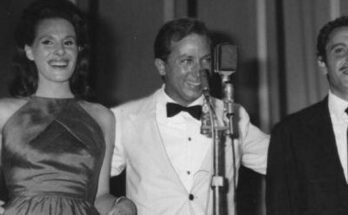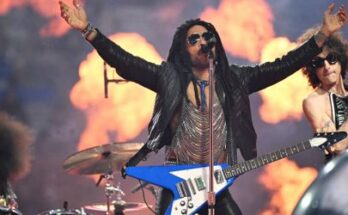JOHANNESBURG – It’s raining cats and dogs. In Johannesburg it always rains at the end of November, when it is late afternoon. To think it’s late spring. Behind a thick curtain of water and hail, you can barely catch a glimpse of FNB Stadium, the symbol of the G20, the gathering of the world’s biggest players gathered in Africa for the first time.
Fifteen years ago, “Waka waka” echoed endlessly in those stands, Shakira’s anthem for the World Cup, the world’s spotlight on South Africa, Spain’s heroic on-field victories of Ramos, Puyol, Iniesta and Casillas. Today the spotlight is back on the summit of powerful countries. But this is another South Africa. And the world is more turbulent and less ordered than we knew then. No amount of dance or pop slogans can erase the dark sensation that is so felt on the southern edge of the planet.
ON NELSON’S TRAIL
“We are in a transition phase. Times change, friends change. America is leaving us. Russia and China are reaching out to us, investing, supporting us.” Mubi struggles to drive the van through the disused and potholed streets of Soweto. The “black” city, the deep soul of Johannesburg, appears to our eyes just a stone’s throw from the leaders’ summit. The skyscrapers, luxury hotels and cascading fountains that greet heads of state and government in their midst are contrasted with endless rows of brick houses, unsafe roofs, shacks and makeshift street market houses. Soweto is Mandela’s hometown, where the heroes of the anti-apartheid revolution took their first steps here, before braving exile, hiding, prison and death. Born as a ghetto city, a cynical and inhumane experiment in white segregation, it is now a neighborhood full of life, with all due respect to the poverty visible everywhere: children playing football in the streets, barefoot among the ruins, grocery stores and beauty salons, and so on. signs of fading and dust. Street vendors grilling cow heads and “mogodi”, offal against a backdrop of mountains and gold mines where gangs of “Zama zama” work, illegal miners sought after by the authorities, life hundreds of meters underground that often ends in tragedy: trapped alive, suffocated, without food or water.
What remains of Nelson’s dream, whose birthplace remains intact, becoming a tourist destination of choice for tourists, remains the pride of a people who defeated racial oppression by paving the way for many others. Mubi, our driver, is of Zulu ethnicity. “Here we live in harmony. Zulus, Tswana, Pedi,
SITUATION
He’s mad at Donald Trump, Mubi. He heated up when he repeated Tycoon’s scathing accusations against South African President Cyril Ramaphosa in a high-voltage meeting in the Oval Office in May. Among them is the alleged “genocide” carried out – according to Trump – by powerful “black people” in South Africa against white landowners, expropriated and murdered with the complicity of the central government. The affront to the world view, the “ambush” aimed at Ramaphosa in front of Roosevelt’s fireplace, was not enough. Trump adds import duties: 30 percent. Now the final challenge: boycott the G20. He refused to participate in the adults’ conclave in Johannesburg. For days the South African newspapers, posted on the bar counters of the big city center hotels, had been heralding a possible change of heart by “The Donald”: perhaps he would send an ambassador, perhaps a diplomat stationed in Pretoria.
G20
Instead, there is nothing: at the G20, the chairmanship of the United States, which will inherit the presidency next year, is still vacant. Ramaphosa did not take it well. The South African president, who is expected to hold elections next year, is relying heavily on the international stage held in the capital. Instead, he must recognize a major diplomatic failure. Even our friends Russia and China didn’t mind the twentieth meeting much. Vladimir Putin, a historic friend of the South African government, was spared a trip to a country that, on paper, recognizes the Criminal Court in The Hague and must act on an arrest warrant issued against the “tsar”. But Xi Jinping, China’s president, didn’t think the trip was worthy of one of his (very rare) appearances abroad: he sent Premier Li Qiang. This is a large lump sum. And they undermine South Africa’s image as a leader of the “global South,” a “non-aligned” world that rejects American hegemony and often prefers the convenience of business to the security of America. The one in China is fine. Between wild investments and acquisitions of state companies, mining, ports and airports. Beijing’s latest commitment amounts to ten billion euros: this is an investment, over the next five years, to build a “Silicon Valley” in Pretoria, creating the largest technology center on the African continent. .
END OF G20?
It is money and opportunity that facilitate and provide oxygen to Ramaphosa’s government, while opinion polls show a fall in popularity, thanks to crime and murder that in South Africa is at its highest in the world. But they also had a political price, they established a relationship of dependence on the Dragon which irritated America and created distance with Washington which had become plastic in the empty G20 seat. South Africa lives in thousands of these contradictions so the spotlight of the international community is focused on them. And these contradictions have weighed on a summit that has lost its centrality in a multipolar world that is struggling to create synthesis in the countries. French President Emmanuel Macron from Johannesburg gave a brief statement: “The G20 is struggling to resolve the global crisis. Perhaps it has reached the end of a cycle.”
© ALL RIGHTS RESERVED
© ALL RIGHTS RESERVED



